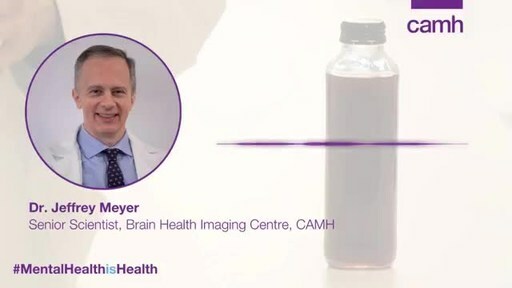CAMH discovery of novel drug target may lead to better treatment for schizophrenia
TORONTO, Dec. 9, 2014 /PRNewswire/ - Scientists at the Centre for Addiction and Mental Health (CAMH) have identified a novel drug target that could lead to the development of better antipsychotic medications.
Dr. Fang Liu, senior scientist in CAMH's Campbell Family Mental Health Research Institute and professor in the Department of Psychiatry, University of Toronto, and her team published their results online in the journal Neuron.
Current treatment for patients with schizophrenia involves taking medications that block or interfere with the action of the neurotransmitter dopamine, which acts on dopamine D2 receptors in the brain. However, because this D2-blocking action may cause unwanted side-effects, such as slow gait, stiffness and tremor, Dr. Liu and her team looked for new ways to interfere with the action of D2 receptors, without causing these side-effects.
Dr. Liu and colleagues showed that the D2 receptor could combine with a protein called the Disrupted-In-Schizophrenia (DISC1) protein. Then, they showed that levels of this combined protein were higher in post-mortem brain tissues of deceased patients with schizophrenia, suggesting it was associated with the illness. Delving even further, the researchers identified the regions where the two proteins bound together.
With this information, they were able to generate a peptide to disrupt the binding of the two proteins, speculating that it may reduce symptoms. In animal models of schizophrenia, they were able to demonstrate that this disruption led to antipsychotic effects, comparable to commonly used antipsychotic medications, but without their side-effects.
"The most exciting aspect of our finding is not the antipsychotic effect of this peptide, which all current antipsychotics have, but rather the possibility of a lack of the side-effects in humans compared to current medications", says Dr. Liu. "We hope that it will lead to a better treatment for schizophrenia patients who experience side-effects from current medications." These side-effects discourage some patients from taking their medications, which impacts recovery. Schizophrenia is a chronic, often severe and disabling mental illness that affects one percent of the general population.
"Our future steps are to determine how this discovery can be translated into a novel treatment for patients as soon as possible," says Dr. Liu. "We are optimistic that our findings will lead to new and better options for treatment for schizophrenia."
This study was funded by the Canadian Institutes of Health Research (CIHR).
The Centre for Addiction and Mental Health (CAMH) is Canada's largest mental health and addiction teaching hospital and a world leading research centre in this field. CAMH combines clinical care, research, education, policy development and health promotion to help transform the lives of people affected by mental illness and addiction. CAMH is fully affiliated with the University of Toronto, and is a Pan American Health Organization/World Health Organization Collaborating Centre. For more information, please visit www.camh.ca
SOURCE Centre for Addiction and Mental Health
Related Links
WANT YOUR COMPANY'S NEWS FEATURED ON PRNEWSWIRE.COM?
Newsrooms &
Influencers
Digital Media
Outlets
Journalists
Opted In



Share this article